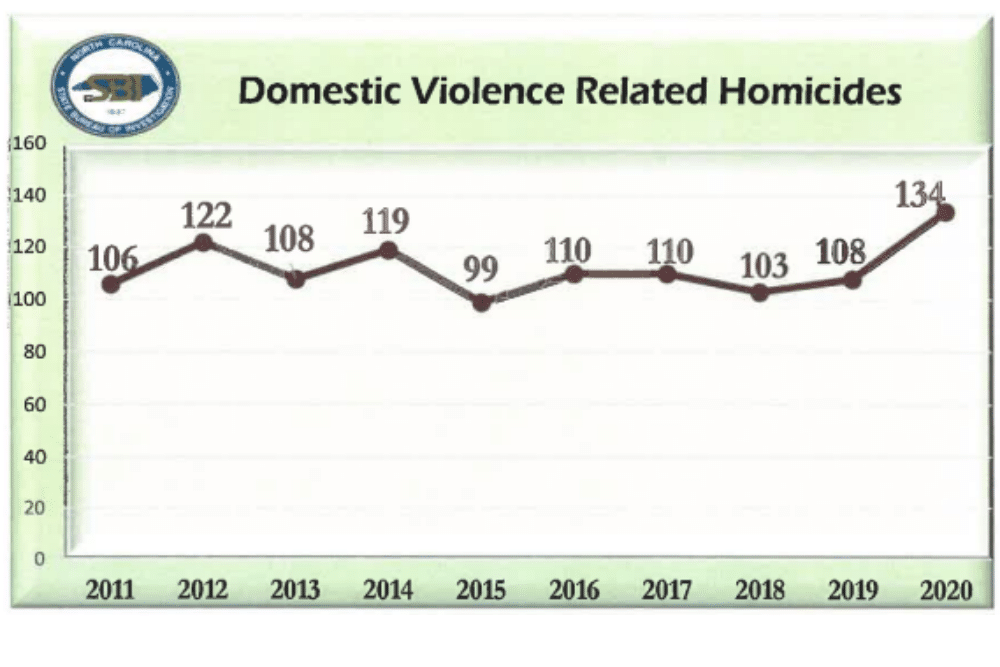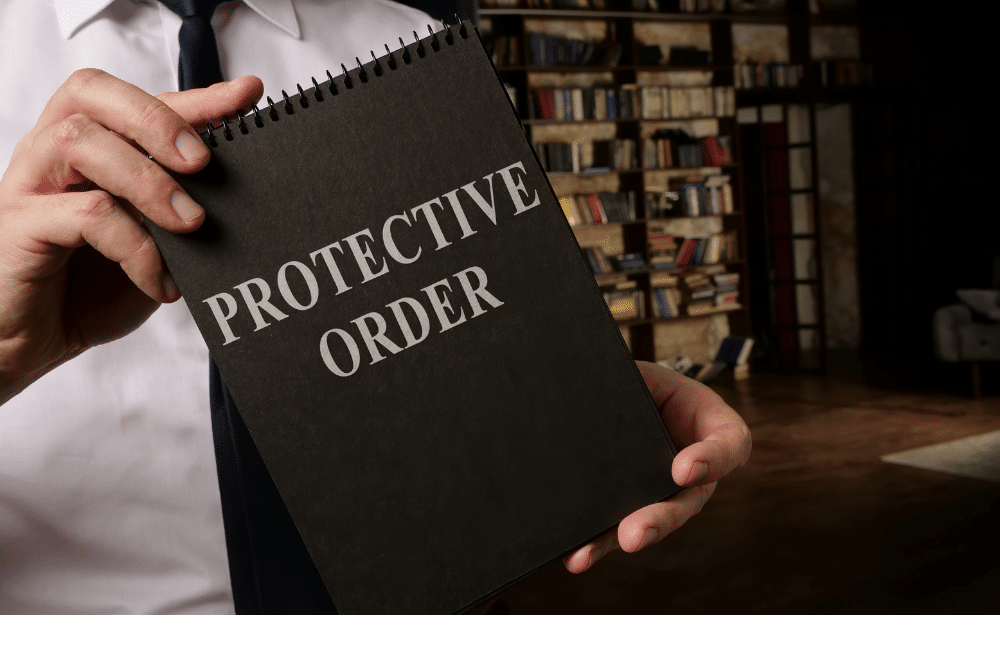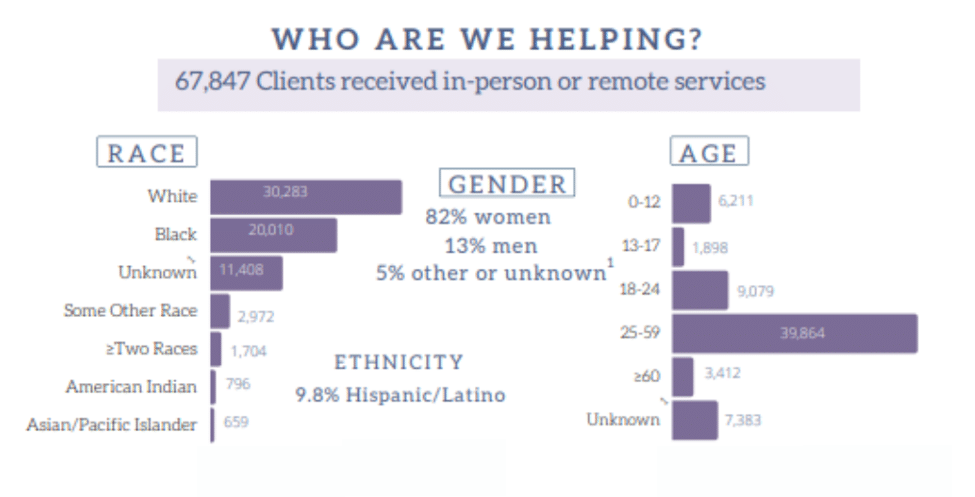Domestic violence is a crime that can have a dramatic impact on families. Why? Because it’s a crime that takes place between people with close ties. It adds strain to relationships and can lead to issues going forward. For anyone accused of domestic violence, it can cause a remarkable shift in their lives that they may not understand if they are convicted.
If you are arrested and accused of domestic violence, then what you must face in the legal system may be completely new to you. That’s why it’s vital to not only get an experienced attorney on your side but also to have some basic understanding of what domestic violence is and how North Carolina treats it.
That is why we created this comprehensive guide to North Carolina domestic violence crimes – to help you understand what types of actions can be considered domestic violence and what the fallout can be if you are convicted.
North Carolina Domestic Violence: What Is It?
Under North Carolina law, domestic violence takes place when certain acts occur between people who have a personal relationship. A personal relationship is further defined under the law and includes:
- Current spouses
- Former spouses
- A person of the opposite sex who has lived or is living with you
- Those to whom you are related, such as children, parents, grandparents, or grandchildren
- Someone with whom you share a child
- Someone who is currently or was formerly a household member
- Someone you are dating or have dated
How Prevalent Is Domestic Violence in NC?
Getting real numbers on the extent of domestic violence incidents and victims in our state isn’t easy. Perhaps the most concrete statistics available are those from groups focused on helping victims. Between July 2020 and June 2021, over 67,000 people utilized these services.
Source: NC DOA Council for Women and Youth Involvement, 2021
In terms of law enforcement statistics, one area where the numbers are very clear is domestic violence homicides – and currently, our state is on a big upswing.

What Types of Actions Constitute Domestic Violence Crimes?
Domestic violence in North Carolina is not one specific crime. Instead, there are several misdemeanor and felony charges that can be considered crimes of domestic violence if they take place between those with a personal relationship.
Some of the most common include:
Simple Assault
This takes place when the accused does something or attempts to do something that puts another person in fear of physical harm. Even if no harm actually occurs, simple assault can still be charged.
Simple assault can also take place by show of violence. To be charged with this, a person must demonstrate that:
- They have the ability to hurt the victim
- Action was taken to cause that person to have a reasonable fear of harm, and
- The victim must react in a way they normally would not in order to try to avoid the threat they’re facing
This crime is a Class 2 misdemeanor, which can result in up to one month in jail for a first offense – or up to two months in jail for a second or subsequent offense.
Assault on a Female
This occurs when a male who is over the age of 18 physically threatens or makes some sort of offensive physical contact toward a female of any age.
This crime is a Class A1 misdemeanor, making it the most serious misdemeanor someone can be charged with in North Carolina. It can result in as many as two months in jail for a first offense or 150 days in jail for a second offense.
Assault with a Deadly Weapon
This crime can be charged as either a misdemeanor crime or a felony crime of domestic violence. It’s a Class A1 misdemeanor if the accused commits assault and battery – or if they commit assault and use a deadly weapon in the commission of the crime. In those cases, the penalties would be the same as an assault on a female listed above.
In order for assault with a deadly weapon to be a felony, the accused must commit assault and battery or assault with a deadly weapon in the commission of that crime – but also have the intent to kill the victim or at least cause them serious bodily injury. If intent can be shown, then it can be charged as a Class E felony.
However, if there is the intent to kill coupled with serious injury during the crime, it is elevated to a Class C felony. The penalty for Class C felonies is up to 98 months behind bars, while a Class E felony can be sentenced up to 31 months.
The law defines “deadly weapons” for this crime. In general, a deadly weapon is considered an object that can kill another person, such as a knife or a gun. However, even blunt objects can be considered deadly weapons in the right circumstances. Also, any object that is used to kill another person is considered a deadly weapon.
Assault by Strangulation
This is a crime often perpetrated in domestic violence situations. It occurs when the accused causes physical injury to another through the act of strangulation. This is a serious crime. It is classed as a Class H felony that can send someone convicted of it to prison for up to 25 months.
Other Domestic Violence Crimes
Domestic violence can apply to nearly every crime, but a few of the most serious and common include:
- Harassing phone calls
- Sexual battery
- Communicating threats
- Rape
- Assault in the presence of a child
- Sexual battery
- Injury to a pregnant woman
- Assault by pointing a gun
- Violation of a protective order
- Stalking
- Injury to personal property
- Interference with an emergency communication

The penalties are all influenced by any prior history of domestic violence crimes. It’s also not uncommon for protective or restraining orders to be issued against the perpetrator in order to keep victims safe when someone is found guilty of domestic violence crimes.
Domestic Violence Protective Orders
The laws in North Carolina were created to help protect those who are victims of domestic violence. Thus, someone accused may have a difficult time due to some remedies the law provides victims, like domestic violence protective orders.
You may also hear these protective orders called “restraining orders.” Protective orders grant certain protections to the person seeking the order, such as:
- Possession of the household
- Requirement for the abusive partner to provide suitable alternative housing for the victim and any children involved
- The granting of temporary custody to the victim and temporary visitation rights, if applicable, to the accused
- The eviction of the accused from the residence shared with the victim
- An order for the person accused to pay child support
- The prohibition of the accused to purchase firearms for a certain amount of time
- The prohibition of the accused to contact the victim either directly or indirectly
- The prohibition of the accused to follow, abuse, or threaten the victim
- The prohibition of the accused to harass the victim by phone or through visiting their workplace
- The prohibition for the accused to treat a shared household pet in a cruel way
- The prohibition of the accused to interfere with the victim in any way
Emergency Protective Orders
 There are also situations in which an emergency protective order can be granted to the victim. This kind of protective order allows the court to grant the order without the accused being given any type of notice of a hearing taking place. They would not be able to give their side of the story.
There are also situations in which an emergency protective order can be granted to the victim. This kind of protective order allows the court to grant the order without the accused being given any type of notice of a hearing taking place. They would not be able to give their side of the story.
These types of orders may require the person accused to leave a home if shared with the victim, stay away from shared children, give up their possession of a motor vehicle, or surrender any ammunition and firearms they have to local law enforcement.
These types of orders are normally only issued if it’s clear a victim is in immediate danger of further incidents of domestic violence.
What Happens If a Domestic Violence Protective Order is Violated?
Violating a North Carolina protective order is a crime in and of itself. In fact, doing so can get you charged with a Class A1 misdemeanor. That’s why it’s important to follow a protective order – or fight it with the help of your attorney – rather than simply believing it can be ignored.
Sentencing for Crimes of Domestic Violence
Aside from the possible jail or prison time discussed above, other things can be ordered by the court to complete as a part of their sentencing for crimes of domestic violence. If a judge does determine that the crime is domestic violence due to a personal relationship, then it is added to your record. They may require you to:
- Undergo psychiatric or medical treatment
- Reside in a treatment facility or attend rehabilitation treatment, counseling, and training for people on probation
- If applicable to your case, successfully complete Drug Treatment Course
- Abstain from alcohol use, as well as monitoring for alcohol use
- Remain under house arrest, only leaving the home for work or school
Defenses to Domestic Violence Crimes

If you are accused of domestic violence in North Carolina, you are presumed innocent until proven guilty and are entitled to a defense in court. You can work with your attorney to help formulate the defense that is right for your case since the most effective one depends on your circumstances.
The most common defenses in these cases tend to be:
Innocence
You may be able to show that you were not present when the crime was supposed to have occurred. You may be able to find a witness who provides a solid alibi for that time window. They can help convince the court that you were not involved in the crime of domestic violence. Your innocence will need to be demonstrated to the court through some means, but your lawyer can help you with that.
The Victim Lied
No one wants to accuse someone they care about of lying, but it does happen – especially when people are going through difficult times together. It’s possible that your partner made up everything about the encounter to get revenge. If that’s the case, then your lawyer can show the court that the victim fabricated their story. They might demonstrate how their injuries do not support the version of events you’re telling or how their story is inconsistent with the police report from the scene.
The Events Were Accidental
If you cannot deny that you were at the scene, you may be able to deny that you intentionally caused an injury to another person. This can be proven through an investigation into the consistency of your story by your attorney. They will then present their findings to the court.
Self-Defense
If the incident occurred, because you were attempting to defend yourself or your children, then there are ways to substantiate this. Your attorney can check the police report to:
- See if the victim admitted to using violence
- Compare your account to the police report
- Check if injuries suffered are consistent with self-defense
- Evaluate if there are any inconsistencies to the story being told by the victim
Errors in the Investigation

Sometimes, you can be guilty of a crime for which you’re accused but have the charges dropped on a technicality. If there were investigative errors on behalf of the police in your case, those can be brought up. The types of things your defense attorney will look for include:
- The police inaccurately recorded any interviews they conducted with you
- Not being read your Miranda Rights while you were being held and questioned by police
- Denial of your request for a lawyer by police
- No probable cause on behalf of police to do an interrogation or search
- Failure of police to collect physical evidence
- A police report that doesn’t describe the incident accurately or offer observations
- Lack of police interviews of eyewitnesses at the scene
A successful defense will depend on how honest and open you are with your attorney, so make sure to fully cooperate with them. Remember, they’re on your side!
Domestic violence in North Carolina is taken very seriously, and being convicted of domestic violence crimes can follow you around for the rest of your life. If you’re facing charges, make sure to contact an attorney as soon as possible in your case – so you can understand the charges against you and begin to work on crafting the right defense for the prosecution’s case against you. Because fighting for your family and future is worth it.










